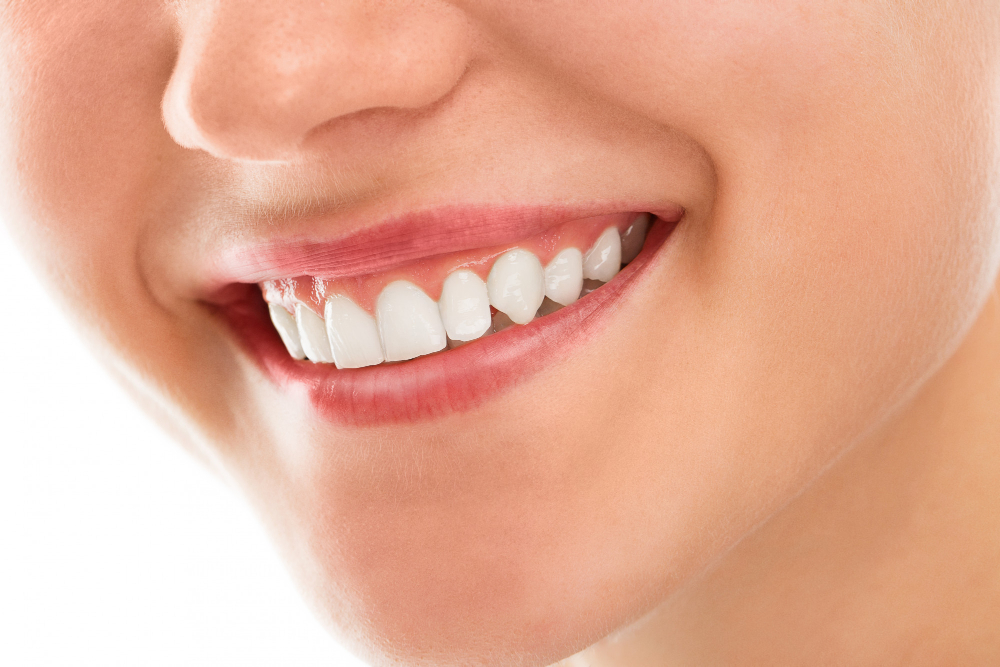

If you want to have healthy smiles. One of the biggest conditions for this is good-looking teeth. Your teeth may rot and turn yellow over time. Or you may have lost your teeth due to illness or accident. Despite all these negativities, you can still have beautiful smiles. One of the most effective methods for this is dental veneers.
Veneer treatment is a permanent procedure. In other words, veneers are permanently bonded to your teeth. However, during the treatment, temporary veneers are attached to your teeth before your permanent veneers are bonded. People who receive dental veneer treatment cannot have their natural teeth again.
In order for veneers to apply and adhere to your teeth, a piece of your natural enamel needs to be cut off. Unfortunately, enamel cannot grow back. Also, once removed, you cannot go back to your natural teeth from before the procedure. Therefore, when the dental veneers are damaged you will need to have them repaired as it is a permanent and irreversible process.
Dental veneers are meant to help you solve certain cosmetic issues for the rest of your life. That's why they have a very long lifespan. If a veneer is broken or damaged, you cannot go back to your natural teeth, you will have to replace the veneer. Dental veneers provide long-term solutions in terms of both aesthetics, good oral hygiene and oral health.
Dental veneers are dental applications used to improve the color, shape, size or function of teeth. There are different types of dental veneers. Their permanence may vary depending on veneers materials used and its care.
Material Type: Dental veneers are usually made of porcelain or composite. Porcelain veneers and laminate veneers are generally more durable and long-lasting. Composite veneers are a more economical option but may not be as durable as porcelain. However, although they are economical, they are long-term solutions.
Application Technique: Dental veneers can last longer when applied correctly by a professional dentist. Good application ensures that dental veneers adhere tightly to the tooth.
Oral Hygiene and Proper Care: Regular oral hygiene and care is necessary for a long and trouble-free life with dental veneers. Regular brushing, flossing and regular dental check-ups are important.
Function of Dental Veneers: Dental veneers are used extensively during chewing and other oral activities. Overexertion or bad habits (such as nail biting) can shorten the life of veneers.
Although it is a permanent procedure, veneers do not last forever. With proper and constant care, they can last up to 15 or 20 years, but they wear out over time and need to be replaced. In other words, the permanence of dental crowns is not forever, but the inability to have natural teeth again. Fortunately, veneers typically require no special maintenance and taking good care of them is fairly simple. Here are some tips to have them last as long as possible:
Brush your teeth twice a day with non-abrasive toothpaste.
Visit your dentist regularly to also check your veneers and overall oral health.
Do not bite or chew hard things and generally avoid using your teeth as tools for untying strings and opening packages.
Avoid eating foods that are too hard or chewy as they can increase the risk of breaking or damaging your teeth
Use a mouthguard when playing sports to avoid damaging your veneers or natural teeth.
Veneers require mental preparation. Because this process is not an application that ends in a single visit to the dentist. If you're not ready for this, it's best to talk to your dentist and explore other options as well. If you're only dealing with minor cosmetic issues, then perhaps bonding or consulting with a good cosmetic dentist may be better. Or, orthodontic treatment may be a better option for treating crooked teeth or the spaces between your teeth.
The healing process after dental veneer will generally take a few days. In this process, the body will get rid of the irritation and inflammation associated with the application. Patients may experience temporary tenderness, discomfort or pain after the application. In addition to all these, the following should be considered after the application:
Local anesthesia is usually applied during the veneer procedure. There may be numbness in the mouth for a few hours after the application. During this time, most patients do not feel heat or pain. Since they do not feel these, they may unknowingly damage their mouth or other teeth. Therefore, it is necessary not to drink hot liquids or chew hard objects during this period. Also, some bruising or inflammation may occur shortly after application, especially on the lower jaw. There is no need for any special treatment to get rid of these negative situations. These conditions will disappear on their own in a few days. Even numbness ends a few hours after the application.
Many patients may experience some pain or minimal discomfort in the veneered area after application. This condition generally resolves within a few days or weeks without any treatment. In addition, some sensitivity is experienced in the surrounding gums after the veneers are placed. To reduce pain and make patients feel more comfortable, the dentist may recommend pain relievers and topical anesthetic gels. If the tenderness or pain persists for more than a few weeks or is severe, you should come back to our clinic.
Special care is required to avoid traumatic situations as temporary veneers are much more fragile than permanent veneers. In general, patients can use their teeth normally and continue to brush.